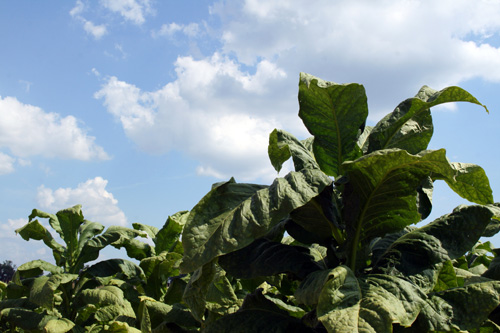The 22nd Century Group has exclusively licensed from North Carolina State University (NCSU) several flue-cured and burley tobacco plant lines that grow with very low nicotine levels. These new plants contain no foreign genetic material and will compliment 22nd Century’s existing very low nicotine plant technologies. The company says that the new, non-GMO, very low nicotine tobacco plant lines are immediately commercially viable as they are the result of multiple generations of plantings that have yielded stable, true-breeding crop lines of very low nicotine flue-cured and burley tobacco plants.
The addition of these non-GMO tobacco varieties represents a significant advancement for 22nd Century’s next generation tobacco technology. The company’s new very low nicotine plant varieties will provide options for 22nd Century and for potential licensees to more readily comply with the U.S. Food and Drug Administration’s (FDA) plan to dramatically reduce the nicotine in all combustible cigarettes sold in the United States. The non-GMO nature of these tobacco varieties will also facilitate the sale of 22nd Century’s proprietary VLN tobacco in some foreign countries where the use of genetically modified crops is restricted.
“The results of this transaction with our research partner, NCSU, meaningfully enhances 22nd Century’s already impressive intellectual property portfolio,” says Juan Tamburrino, the company’s vice president of research and development.
“Importantly, our new plants and their genetics provide the company with an excellent molecular background for improved taste characteristics and enhanced agronomic performance,”
“This exclusive NCSU license gives 22nd Century a substantial strategic and competitive advantage,” says Henry Sicignano, III, president and chief executive officer of 22nd Century Group. “Since approximately 90 percent of the tobacco in cigarettes is a mixture of flue-cured and burley varieties, we now have the ability to supply very low nicotine tobacco blends to potential partners in the U.S. and around the world.”
Tobaccos licensed











